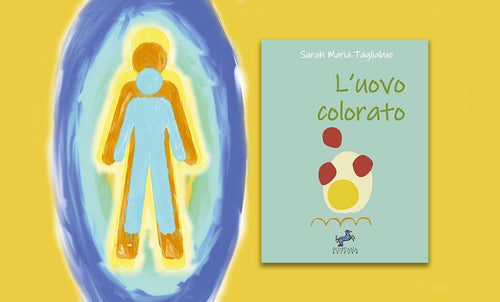
God the Father is a hearer of prayer
Enrico D'ErricoSince I began to take an interest and pleasure in writing, I have spoken numerous times over the years of a fundamental characteristic of the Creator: He hears and answers prayers.
In the sacred scriptures, the book of Psalms contains numerous verses that can clarify this aspect:
“O Hearer of prayer, yes, to you will come people of all flesh.” (65:2) “The eyes of all look to you with hope… You open your hand and satisfy the desire of every living thing. God is near to all who call upon him… He will perform the desire of those who fear him, and he will hear their cry for help.” (145:15,16,18,19)
But how should we pray? In my book “I am a Soul” I have devoted much space to this topic. I therefore bring you an excerpt from chapter 9 of the second part of my work.
The art of prayer
With trust, incessantly. We have talked about how in this evolutionary period the illusion of living separated from the Father reigns supreme. The most effective way to enter into reality, into a state of consciousness of the Kingdom, is to use prayer . In the Bible we have precise indications on how to pray. First of all, it must be done incessantly (1 Thessalonians 5:17), on every occasion and place (Ephesians 6:18; 1 Timothy 2:8), and with constancy (Romans 12:12; Colossians 4:2). Furthermore, the book of Matthew guides us to find a favorable condition; in fact, in the frantic rush of daily life, it can be difficult to create the space of silence that allows us to speak to God. Jesus says:
“When you pray, go into your private room, close the door and pray to your Father who is in secret, and your Father who sees in secret will reward you. But when you pray, do not say the same things over and over again, as the Gentiles do.” (Matthew 6:6,7)
How precious these indications are! Let's see together how they can be applied.
We are told first to go into our private room; this can obviously mean creating a suitable time and space in our home, but certainly wherever we are we can center ourselves and create a favorable situation in which to connect with the Father. Praying in secret means going as deep as possible into ourselves, into an interior place of immense vastness, of infinite beauty, where everything is quiet, where a sacred silence reigns and where for ourselves there is still so much to discover.
The Creator, seeing our ardent desire to speak with Him, will reward us sooner or later by making His presence felt and thus expanding our state of bliss.
It is truly wonderful to know that no matter what happens, we can access the presence of the Father instantly: he, even if we usually do not realize it, is never far from us. Entering the private room therefore refers above all to creating a special sacred space within oneself.
You won’t need to use many words because God knows our thoughts even before we express them (Matthew 6:7-8), so you can also remain silent. Stay listening, feel His comforting presence, feed with pleasure on this miraculous connection and you will see that the divine will communicate to you what He needs to. If you want to be able to hear Him, you must first prepare yourself. He has always tried to contact you, but you could not hear Him because your ears were blocked. Maybe you called and called many times and He always answered, but you just could not hear Him.
Scientists have been doing very demanding and expensive research for decades to try to communicate with other creatures that they believe may be present in the universe. In all of this, once again, our great dullness and presumption is revealed. The universe is very populated, but every creature is different from the other and it is not possible to communicate with them using human language. It is such a simple thing to understand! When you read in the Gospels that some disciples were able to preach to other people in languages other than those they knew up to that point, it illustrates precisely this; when you want to be understood by someone you have to use the language that he knows.
While the Lord is able to understand every creature that speaks to him, you will never be able to hear him if you do not first do a thorough job of “cleaning” your hearing system. It is about roughing out your rough edges, making you softer, more elastic, more receptive. He speaks to you continuously: you must beg him to help you become able to hear him. The ideal space that you can find, in a church or in your home in front of your small altar, will never be enough if you do not first of all prepare yourself to receive the Lord, trying to know the things that make you suitable to receive him.
Keeping on asking and not losing heart (Luke 11:9) is obviously a good thing, but in the meantime you need to know and apply the requirements of the Kingdom, considering it just like a nation you want to go to and where, in order to be accepted and understood, you need to learn the habits, customs and language of the inhabitants.
If you make yourself eligible to be received at the King's court, rest assured that no one will reject you and you will be able to speak with the Lord, the King of Kings himself. Of course, if you are arrogant and superficial and distrustful, before praying, you think "let's try with God too, you never know..." , your prayers will go unheard for years and your faith, already very modest, will disappear completely because you will think that God does not love you enough and is too busy to take care of you.
Those who have practiced prayer for a long time know that it is an art that cannot be learned in three days of intensive weekend. It requires constant commitment, a daily focus on Christ; getting in touch with him must become the first thing you want to achieve in your day. You will see that over time you will be able to hear his voice because you will have modified your hearing system, removing the plug of superficiality, arrogance, ignorance.
As you cleanse your being, at all levels, of all grossness, you will be enabled to “see” Christ in many more circumstances than usual; it will be on the face of that woman who sold you flowers at the market, you will find him in the magical flight of a flock of starlings… and when you have ears to hear you will constantly hear him expressing himself in you, with you and through you.
Continuing in the verses of Matthew, we see that even the people of the nations of the world pray, but they, in their modest state of consciousness, also like to privilege in this case the coarsest aspect, the quantitative one; in fact they use many words and always say the same things. They do not even know what they are saying, they are not present there, they are not talking to God but simply, like tape recorders, they are reproducing something learned by heart, without knowing its meaning and only to be seen by other people, so that they can be amazed by their supposed great faith.
Jesus reminds us that in reality we could also be silent when we pray, because the Father knows what we need even before we ask. Those of us who have a partner with whom we are ardently in love know what this means: in fact, when you love, you know what the other person wants even before he or she tells you, and you are eager to promptly satisfy that request even if it is unexpressed. This is what the Creator does with us; he loves us very much and therefore is very quick to understand our needs and eager to satisfy them fully.
When we pray in a state of worldly consciousness, we cannot ask for things that are in harmony with the purpose that the Father has for us. There is no faith, there is no trust; perhaps there is barely a little hope, but there is certainly no absolute certainty that he hears and answers our supplications. In reality, as we will see better in the next subtitle, God hears and answers all prayers. I am referring to the fact that as creators of our reality, whatever we ask for we get; therefore it is important to observe what we are also unconsciously asking for.
Continuing, Jesus says:
“You must pray like this:
“Our Father in heaven, hallowed be your name. Your kingdom come. Your will be done on earth as it is in heaven. Give us this day our bread, and forgive us our debts, as we have forgiven our debtors. And lead us not into temptation, but deliver us from the wicked.”
What wonderful words, full of meaning. Of course, common sense makes us understand that we do not necessarily always have to repeat the exact words of the prayer. It is useful instead to ask God himself to allow us to enter into the various concepts expressed, to be able to draw the most hidden teachings and learn to pray in a way that reflects the contents of that model prayer.
In the light of what I have learned in the course of my life, but above all thanks to the inspiration that I feel more and more often impregnating my heart, I would like to suggest another approach to this prayer. Obviously, far be it from me to think of adding or taking away anything from the Our Father taught by Jesus, which is perfect just as it is. My suggestion is to perceive that the Father is already answering our supplication at the very moment in which we address it to him, and that therefore his name is already sanctified on earth and his Kingdom is already active in those who strive to carry out his will.
He provides every day the things necessary for our maintenance, and I do not speak only of solid food but of all the spiritual nourishment to which we have free access. Of course, knowing the mercy of God, I know that when I am in good love with my neighbor, he immediately forgives all my errors, voluntary and involuntary.
Finally, I know that my loving Shepherd will never allow me to be tested beyond what I can bear (1 Corinthians 10:13).
As I began to feel this reality penetrate deep into my heart and permeate my entire being, I realized that perhaps the most well-known prayer in the world could be expressed in a way that more fully testifies to our complete and unshakable confidence, in harmony with Mark 11:24 which says, “What things soever ye pray for, believe that ye receive them, and ye shall have them.”
It is time for our prayers to increasingly become thanksgiving for something we already have, rather than asking for something we think we do not have.
This concept, of giving thanks even before receiving, is found in another passage of the Bible, in the book of John, chapter 11, verses 1 to 44, where the heartbreaking episode of the resurrection of Lazarus is described. Once again, I invite you to read trying to enter a state of consciousness different from the one you need to go shopping at the supermarket; this way it will be easy for you to perceive the greatness of the love that Jesus had for his friend. You will also notice how the people with whom Jesus interacts, speak and always behave at a level of awareness much lower than his: in fact, he always speaks and responds trying to bring them into the consciousness of the Kingdom.
But the point I would like to highlight is in verse 41 where we read, “Jesus looked up to heaven and said, Father, I thank you that you have heard me.”
The remarkable fact is that although Jesus has not yet called out to Lazarus to come out and the miracle has not yet actually occurred, he already thanks the Father, because his perfect faith made him sure of obtaining what he was about to ask for. We find confirmation of this necessary faith when we pray, in the book of James, chapter 1 verses 6 and 7:
“But ask in faith, not doubting at all, for the one who doubts is like a wave of the sea driven by the wind and tossed. For let not that man suppose that he will receive anything from the Father.”
And 1 John 5:14,15 adds:
“And this is the confidence that we have toward him, that, if we ask anything according to his will, he hears us. And if we know that he hears us, whatever we ask, we know that we will have what we have asked, because we have asked of him.”
















































